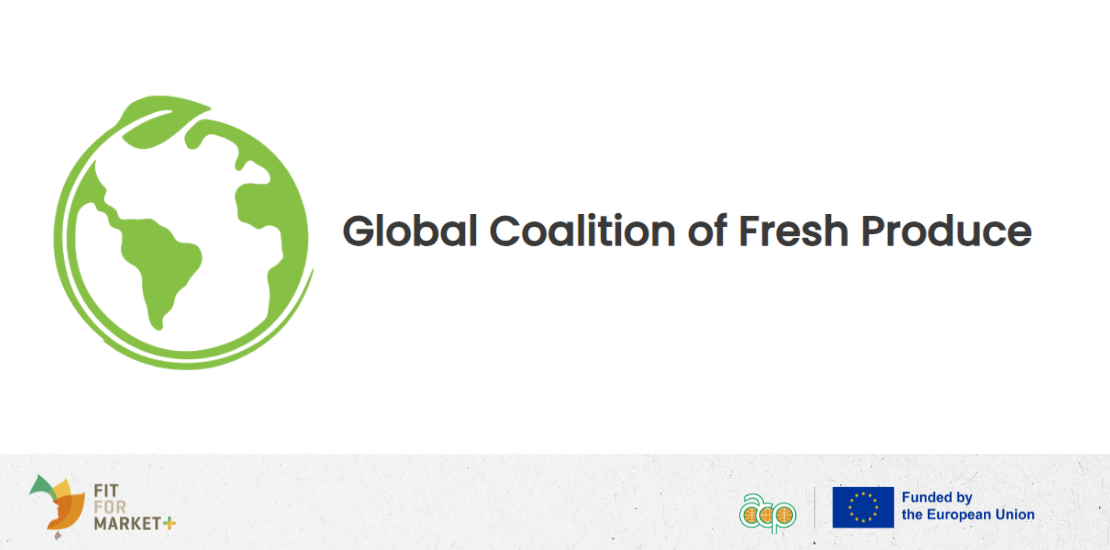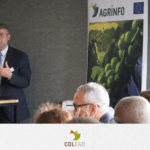- 19/07/2024
- Posted by: Sandra Borma
- Category: News

Results of a GCFP survey
The Global Coalition of Fresh Produce (GCFP) , a collaboration of global fresh produce associations, recently conducted its second annual survey to assess the impact of rising production and trading costs on fresh fruit and vegetable suppliers. The survey included 88 respondents from various sectors including growers, shippers, packers, wholesalers, distributors and other supply chain partners in Asia, the Americas, Europe, Africa and Oceania. Note that more than 50% of the respondents are producers and 48% of the respondents are in Africa.
Survey objectives and methodology
The primary objective of the 2024 survey was to assess whether the industry has shown signs of recovery from the unprecedented cost increases experienced during the COVID-19 pandemic. By comparing current data with responses from 2023, the survey seeks to develop global and national perspectives on the evolving impact of production and trade costs across the regions covered by the Coalition: Canada, USA, Europe, Africa, New Zealand, Australia and South America.
Key findings
The survey shows that the vast majority of fresh fruit and vegetable suppliers continue to face significant cost increases more than four years after the onset of the COVID-19 pandemic. More than four-fifths of respondents reported continued increases in the costs of labour, fuel, gas, fertilizer, electricity, and transportation.
In Africa, the survey highlighted several key challenges and trends:
- Transport and logistics: shipping costs have escalated, affecting the profitability and competitiveness of African produce in the global market. Suppliers have noted that logistical challenges, including port congestion and inefficient transport networks, have exacerbated these problems.
- Labour costs: they remain a major concern for fresh produce suppliers in Africa, exacerbated by inflationary pressures and political and economic instability in a number of regions.
- Electricity, fertiliser and fuel costs: the rising cost of electricity has been a significant burden, particularly for those involved in packing and processing. Unreliable power supply in some regions also poses additional challenges. Suppliers in Africa also reported significant increases in the cost of fertiliser and fuel.
Impact on businesses
The continued increase in costs has forced many companies to implement various coping strategies. These include :
- Cost-cutting measures: companies are exploring all possible avenues to reduce costs, including reducing the workforce and optimising the use of resources.
- Price adjustments: some suppliers have had to increase the prices of their products, which can lead to reduced competitiveness in both local and international markets.
- Innovation and efficiency: there is a growing emphasis on adopting innovative practices and technologies to improve efficiency and reduce costs. For example, some manufacturers are investing in renewable energy sources to mitigate the impact of rising electricity costs.
Despite some global moderation of the cost rises since the COVID 19 period, the industry continues to grapple with substantial cost increases across various areas.
The survey highlights too the need for continued support and innovative solutions to help the fresh produce industry meet the ongoing challenges of rising costs. For Africa in particular, there is still a critical need for investment in infrastructure, technology and capacity building to improve the resilience, sustainability and competitiveness of fresh produce supply chains.
The Global Coalition of Fresh Produce and COLEAD in particular remain committed to voicing solutions and promoting best practices in the context of the needed transformation of agrifood systems to address these disruptions and ensure sustainable and resilient supply chains, especially for fresh produce.
For more information, please contact the Global Coalition of Fresh Produce.
The full report on the satisfaction survey will be available here shortly.
This activity is supported by the Fit For Market Plus (FFM+) programme, implemented by COLEAD within the Framework of Development Cooperation between the Organisation of African, Caribbean and Pacific States (OACPS) and the European Union. This publication receives financial support from the European Union and the OACPS. The content of this publication is the sole responsibility of COLEAD and can in no way be taken to reflect the views of the European Union or the OACPS.





